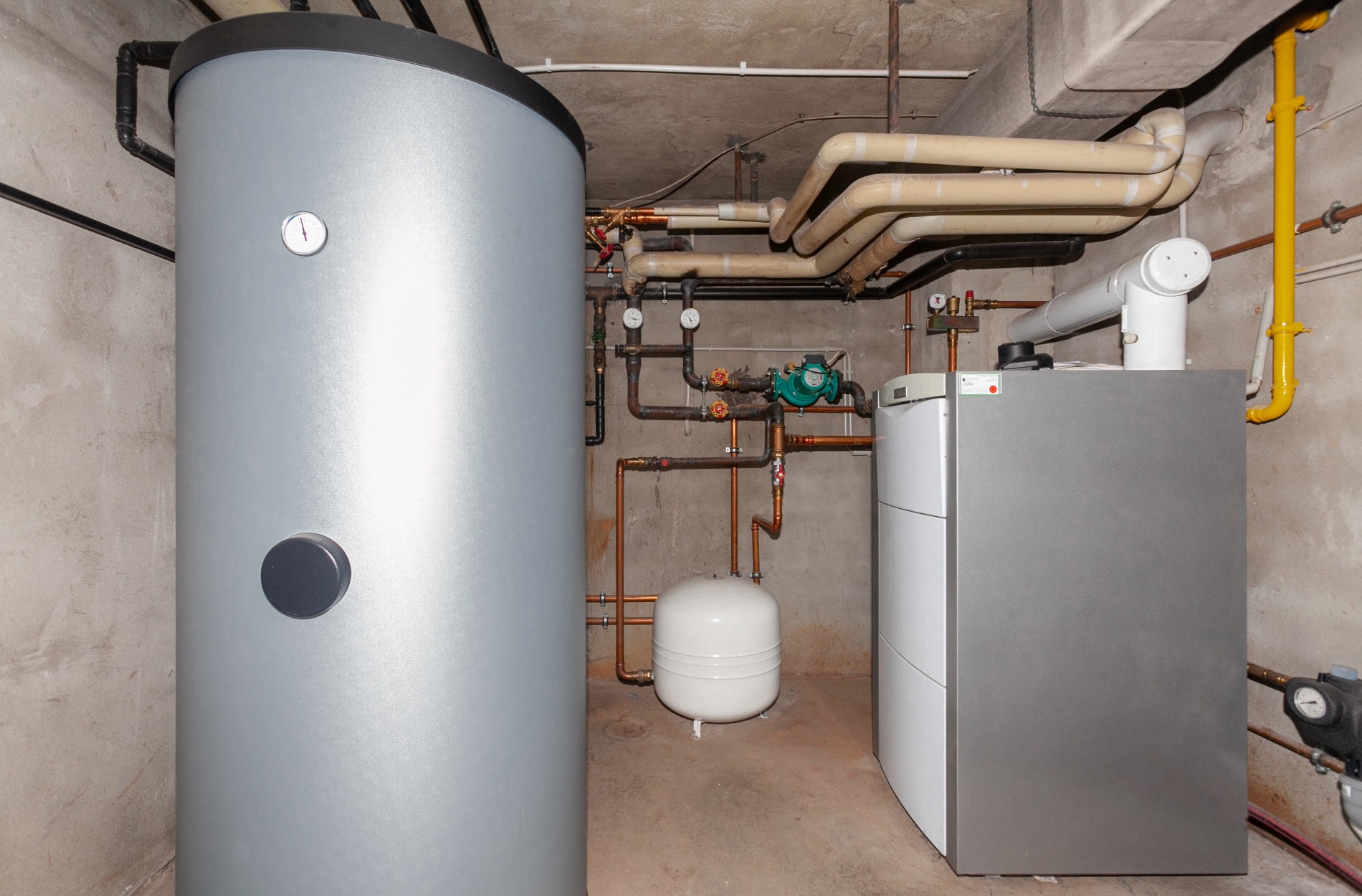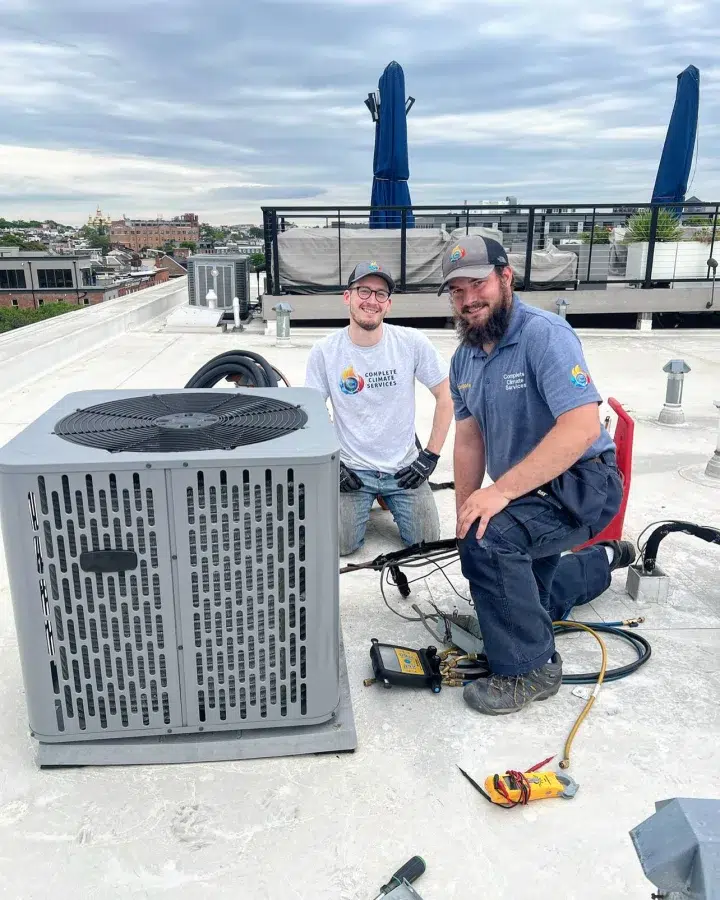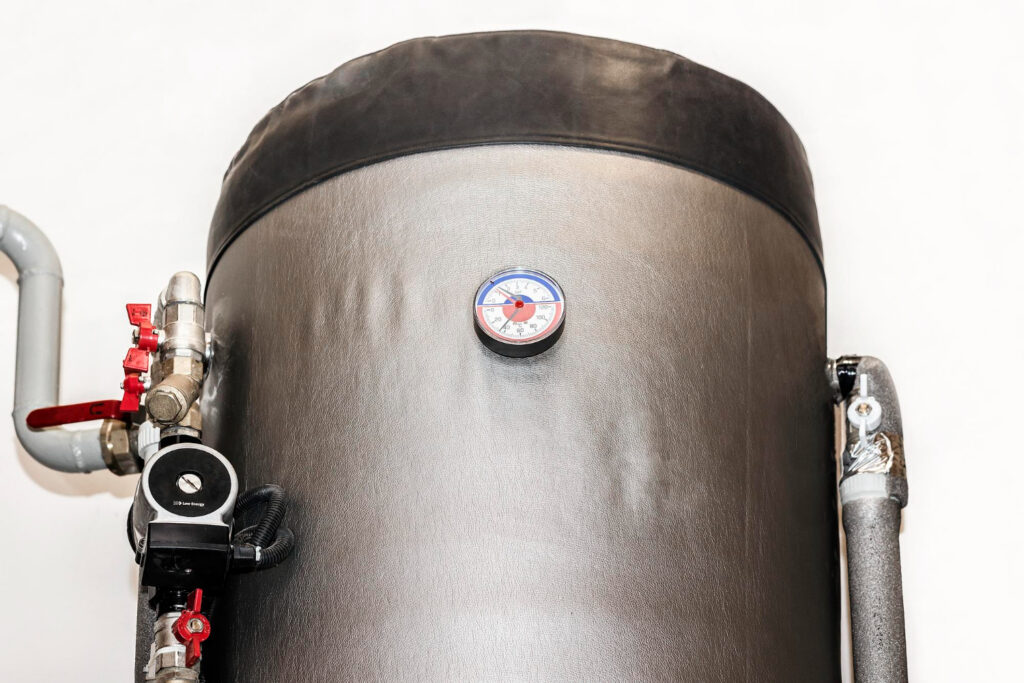As we move through October, cooler nights in Baltimore and Columbia start to show signs of what’s ahead. When homeowners start cycling their heating systems back on, comfort matters. But what happens when certain rooms feel warm and cozy, while others are still chilly? That’s usually a sign your system isn’t distributing heat evenly, and more often than not, your HVAC boiler has something to do with it.
Boilers run quietly in the background most of the year, but fall is usually when problems start to show up. Uneven heating can sneak in slowly, making you think it is just the house settling into the season. But it often points to deeper issues in the heating system. We’ll walk through what might be causing the trouble and how to spot the signs early before you are stuck with cold rooms in the middle of winter.
How HVAC Boilers Heat Your Home
To understand what might be going wrong, it helps to first get how a boiler system works. Unlike forced air systems that push heated air through ductwork, boilers use hot water or steam to carry heat. The water is heated in the boiler, then sent through pipes to radiators or baseboards throughout the house. That warmth spreads into each room through those surfaces.
A properly working boiler keeps water moving consistently. Every room that is connected should heat up around the same time. But when something interrupts that flow, like buildup in the pipes or a part not working right, temperature can become patchy.
Older systems, especially those built a few decades ago, do not always heat as evenly as newer ones. Some older homes in Baltimore or Columbia might still be using original boilers or older-style radiators. These systems can still work fine, but they need more attention to keep things balanced.
Complete Climate Services works on both modern and older boiler models and can help with custom service plans for homeowners who have systems in Baltimore’s historic or unique homes.
Common Causes of Uneven Heating
There is more than one reason a boiler system might fail to heat rooms evenly. One big issue is air or sludge in the pipes. Over time, air can slip into the closed system and throw things off. This can slow water flow or stop it altogether in certain parts of the home. Sludge, which is usually made of mineral buildup or corrosion, can clog sections of piping, making things even worse.
Another cause comes down to the layout of your house. Homes with more than one floor, or rooms that get more sun during the day, can heat at different rates. If the boiler is not set up to compensate for those shifts, you will notice differences from one room to the next.
Here are a few signs to watch for:
– One or two rooms take much longer to heat than the rest
– Radiators feel hot at the bottom but cool at the top
– Rooms heated by baseboards feel cooler than they used to
These do not always mean a full breakdown is coming, but they are good clues that something needs adjustment.
When the Thermostat Isn’t the Issue
It is easy to blame the thermostat when heating feels off. But that little control on the wall does not always deserve the finger-pointing. If your home uses zoning, where different areas are on different schedules or temps, it is completely possible one zone is acting up while others are fine.
Sometimes, the thermostat is set correctly, and it is the system’s response that is off. For example, if water isn’t circulating the way it should, some zones might never get the heat they are supposed to. On paper, everything looks fine, but your toes are still cold in the back bedroom.
This is where things like pump operation, valve settings, and balance come into play. It is not always a matter of pushing the thermostat up a degree or two, it’s about whether your system is actually carrying out that request the way it should.
Maintenance Matters More Than You Think
Boiler systems run quietly for much of the year, which is why regular maintenance often gets skipped. But over time, parts age, pressure drops, and sediment builds up. These small things can slowly lead to bigger imbalances in how heat moves through the home.
When boilers do not get regular check-ups, the signs might not show up until nights are colder and you depend on heating every day. A radiator that seems lukewarm could be due to a sticky valve or a small air pocket that has been building for months.
Before fall really kicks in, having the system flushed or inspected can make a real difference. Things like worn-out circulator pumps or air vents affect how powerfully and evenly heat travels. These are small fixes for a technician, but they can restore comfort across the whole house.
Complete Climate Services offers annual heating maintenance checks throughout Baltimore and Columbia. Their technicians will inspect system pressure, hot water flow, and vent operation as part of a full tune-up ahead of the colder months.
Why Professional Diagnosis Helps
Uneven heating isn’t always frustrating because of the temperature. It’s frustrating because the fix is not clear. With an HVAC boiler, multiple parts are responsible for keeping things balanced. The right diagnosis makes all the difference.
Trained technicians know to look for:
– Faulty or clogged zone valves
– Low water pressure that slows distribution
– Malfunctioning pumps that should move hot water
– Airlocked pipes or blocked radiators
These issues do not always have easy signs you can spot on your own. A noisy radiator or one that doesn’t get warm might be the only hint. It takes someone who understands the flow of the full system to find the exact issue and safely repair it without making things worse.
Every boiler setup is a little different. That is why the solution for one home in Baltimore may not work for another just down the street in Columbia.
Get Ready for Reliable Heat This Season
When all parts of a boiler system work together, heat naturally spreads where it needs to go. That means no cold corners, no rooms lagging behind, and no thermostat battles. Catching early signs, like slow-to-warm rooms or uneven radiator temps, can help stop small issues from growing into bigger ones.
Fall is the right time to take a good look at how your HVAC boiler is running. By checking in on things now, you will not be left scrambling once winter temperatures hit. Making time now can save you a lot of frustration later, especially when comfort matters most.
FAQs
What’s the first thing to check if my heat feels uneven?
Start with the radiators or baseboards. If some feel colder than others or colder at the top than the bottom, there might be air in the system or a blockage.
Do thermostat issues cause uneven room temperatures?
Sometimes, but not always. If your thermostat is working fine and still some rooms are colder, the problem might be inside the system itself, like valves or circulation.
Can older boilers still heat evenly?
Yes, but they usually need more attention. Older systems can work well, but they depend on steady flow and clean parts. Any buildup or failing part can throw things off.
Is it safe to bleed my radiators if one isn’t heating?
It might release some trapped air, which helps. But if you are not sure how the system is set up or it does not solve the problem, it is best to have it checked by a pro.
How often should an HVAC boiler be maintained?
Once a year is a good rule of thumb. A fall checkup helps spot things before cold weather kicks in for good.
Parts of your home feeling cooler than others when the boiler is running could mean something bigger is going on. We’ve seen how build-up, circulation trouble, or zones not working right can keep your system from heating the way it should. A quick check now can help keep things steady through the colder months. If you’re in Baltimore or Columbia and the heat isn’t reaching every room, it might be time to have your HVAC boiler checked out. Call Complete Climate Services to schedule your visit.



